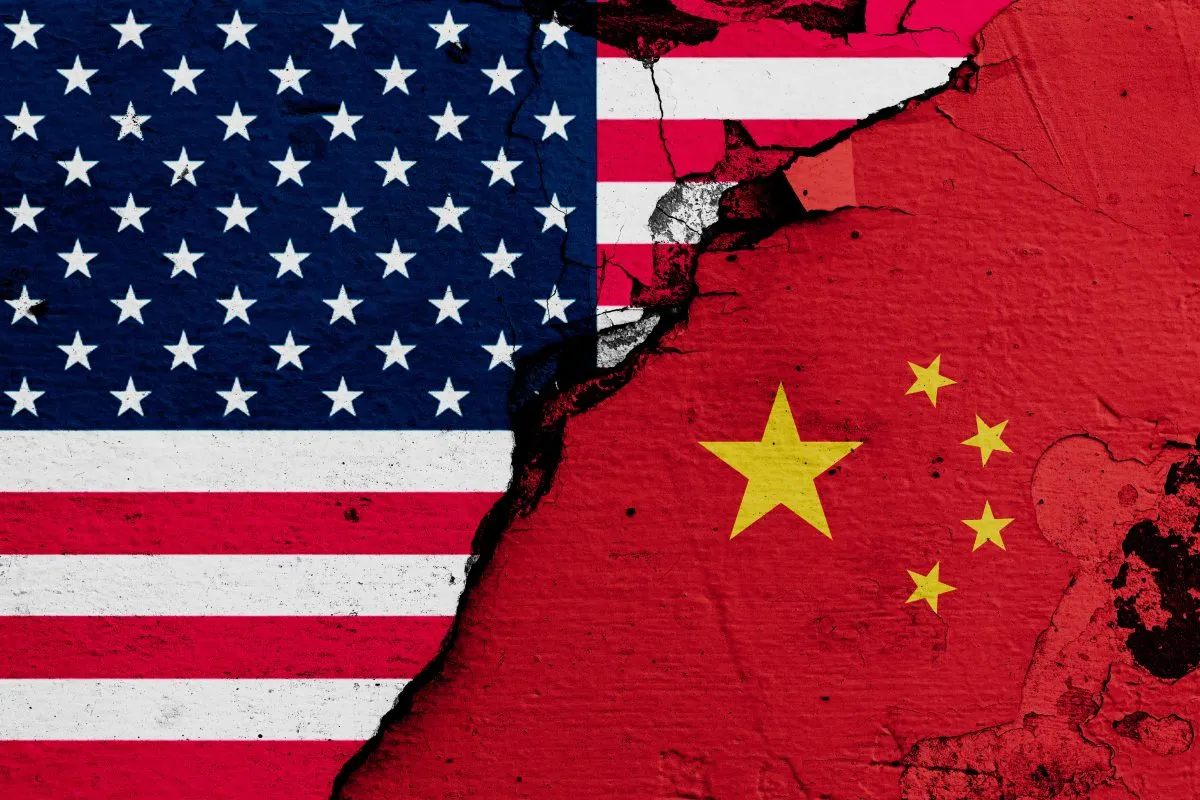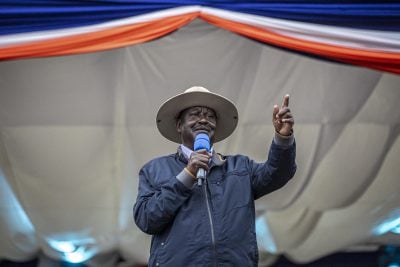At the start of May, the International Monetary Fund (IMF) issued a stark warning to sub-Saharan Africa. The region “could stand to lose the most if the world were split into two isolated trading blocs centred around China or the United States and the European Union,” the IMF said.
In the most severe scenario, in which capital flows between the two trade blocs were completely cut off, the IMF believes that sub-Saharan Africa “could experience a permanent decline of up to 4 percent of real gross domestic product after 10 years” and see a permanent decline in economic growth.
It is certainly true that Africa, like every continent, has seen economic turbulence in the aftermath of Russia’s invasion of Ukraine, which has aggravated geopolitical tensions between East and West. Supply chains for grains and wheats have been disrupted, leading to higher inflation for essential goods.
A more volatile world has encouraged investors to put their money in “safe haven” financial assets, such as the US dollar, making it more expensive for African governments to service their dollar-denominated debts.
Further, the slowdown in business activity and global economic growth has reduced African governments’ trade and taxation revenues. If the IMF’s prediction is realised, these consequences would just be among the first felt by Africa as geoeconomic fragmentation deepens.
Some experts, however, question the premise of the IMF’s forecasts. Edward Knight, geopolitical researcher at the Tony Blair Institute for Global Change in London, tells African Business that “the US-China competition is not inherently bad for Africa, nor inherently good. I think it really depends on how different African governments engage with both the US and China.”
He cites the case of critical raw materials as an example. “The supply chains usually involve both the US and China. African countries export them to China, where the materials or minerals are processed, and they end up in American iPhones, for example. Disruption to that clearly can happen immediately and have a negative impact,” he says.
“But on the flip side, if the US wants to keep having access to processed minerals without China, that could end up leading to a bidding war, which would be good for African countries. They might even go one step further and start investing in domestic processing facilities and build their own kind of viability in that way.”
African agency matters
Teniola Tayo, trade policy fellow at the Africa Policy Research Institute in Berlin, agrees that “it really depends on to what extent African countries leverage the situation to their advantage instead of waiting to be victimised by the situation… African agency will determine the outcome.”
Indeed, while the IMF’s predictions rest on the assumption that “fragmentation and polarisation” will hit African trade and economic growth, there is the possibility that African countries could benefit from playing China and the US off against each other.
China has been very active in Africa diplomatically and economically, particularly since the launch of the Belt and Road Initiative in 2013. It surpassed the US as Africa’s largest trading partner as early as 2009. The US is widely suspected to have neglected its relationships in Africa, but is now attempting to address this in a bid to tame China’s influence.
In December last year President Biden hosted a summit of African leaders at the White House and US Treasury secretary Janet Yellen embarked on a 10-day tour of three African countries at the start of the year to try and reaffirm the States’ commitment to the continent.
Sandun Munasinghe, Africa lead at the Tony Blair Institute, says that “the US has been a lot more stagnant in Africa compared to China, but could start to play a bigger role.”
In light of the battle for influence in Africa, Munasinghe believes that “the US could engage more with African government over the next decade and support regional frameworks, including the African Union’s Vision 2063.” Increased US economic and diplomatic support for Africa would undoubtedly be a boon for Africa’s economy, particularly if the US and China find themselves in a spiral of one-upmanship in a bid for greater geopolitical advantage in Africa.
Africa ‘doesn’t want to choose sides’
The IMF forecasts also rest on the assumption that, should the world divide into two competing blocs, Africa would be forced to choose one partner over the other. However, as Knight points out, this would not necessarily be the case. “African governments have consistently voiced that they don’t want to have to choose sides,” he tells African Business.
“I think they’ve actually been very effective in getting this message across. The US and China are more explicitly in competition with each other directly, and they understand that countries around the world don’t want to make that choice.”
Knight notes that the US has attempted “to force ultimatums” before but that such a strategy “is rarely successful”. The US long tried to discourage African governments from allowing Chinese telecommunications company Huawei to build networks on the continent, for example, but failed. Components from the Chinese company are now used in around 70% of Africa’s 4G networks. Partly because of this experience, Knight believes, “the US is stepping back from this kind of diplomacy and recognising that it’s not as effective.”
Despite this, the risk does of course remain that the IMF’s worst-case scenarios come to fruition. Knight says that “businesses in Africa that rely on collaboration between the US and China should be aware that it’s a relationship that is in flux, and there may be risks associated with that.”
How does Africa go about hedging against these risks? Tayo says that “other challenges, such as the Covid-19 pandemic and the Russia-Ukraine war, have already driven home the need to develop alternative supply chains as well as domestic ones.” She suggests that geopolitical tension between East and West could further encourage African countries “to push for local production of goods and services through implementing the African Continental Free Trade Area agreement”.
“Countries and businesses should be positioning themselves for alternate futures, exploring other markets and fast-tracking the agenda for local production,” Tayo adds.
Much has been made of the “decoupling” between the US and China and the potential impact of this on the rest of the world. But it is worth noting that business relationships between Washington and Beijing have, in some ways, never been stronger. According to the US Bureau of Economic Analysis (BEA), US-China trade in goods hit a new record in 2022, reaching $690.6bn. Is the risk of the world “splitting into two isolated trading blocs” a realistic one?
“I think the risks can be slightly overblown if you only look at intergovernmental relations,” Knight says. “If you look at business relations, they still seem to be quite strong.”
Related article
Africa faces ‘permanent decline’ if China-West tensions rise
Want to continue reading? Subscribe today.
You've read all your free articles for this month! Subscribe now to enjoy full access to our content.
Digital Monthly
£8.00 / month
Receive full unlimited access to our articles, opinions, podcasts and more.
Digital Yearly
£70.00 / year
Our best value offer - save £26 and gain access to all of our digital content for an entire year!

 Sign in with Google
Sign in with Google 



